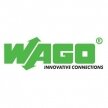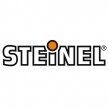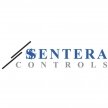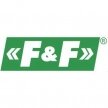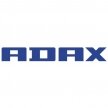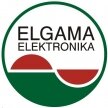Functionality:
Temperature controllers and thermostats continuously measure the ambient temperature and automatically adjust heating, cooling, or air conditioning systems to maintain the set temperature. If the temperature falls below or rises above the established limits, the device responds and activates the corresponding system, ensuring temperature control.
Key Features:
Wide Temperature Measurement Range: Modular temperature controllers and thermostats can measure various temperature ranges, from very low to high temperatures, making them adaptable to various applications.
Sensitivity Adjustment: Users can set different temperature sensitivity levels, allowing the device to respond to temperature changes, optimizing system performance.
Multiple Functions: These devices may include additional features such as timers, programming, digital readings, and even remote control options, enabling users to manage systems more effectively.
LED Indicators: Most modular temperature controllers and thermostats have LED indicators that inform about the operational status of the device, as well as the set and actual temperature.
Compact Design: These devices are typically mounted on DIN rails, allowing for easy integration into existing electrical systems and saving space.
Testing Function: Many models include test buttons, enabling users to periodically check the device’s operation and ensure it functions efficiently.
Safety Features: Some models are designed with additional protective functions, such as automatic shutdown if the temperature exceeds set limits.
Applications: Modular temperature controllers and thermostats are widely used in various fields:
Industry: Ensure that the temperature of industrial equipment is optimally maintained to prevent failures and improve manufacturing processes.
Climate Control Systems: Used in heating, cooling, and air conditioning systems to ensure comfort indoors.
Residential Systems: Maintain the desired temperature at home, helping to reduce energy costs and ensure comfort.
Advantages:
Energy Efficiency: Effectively manages heating and cooling systems, helping to reduce energy costs.
Convenience: Automatic temperature regulation ensures comfort in residential and working environments.
Easy Installation: Compact design allows for easy integration of devices into existing systems, saving time and effort.
Disadvantages:
Cost: Modular temperature controllers and thermostats may be more expensive than simpler models, but their functionality and safety levels often justify the investments.
Technical Knowledge Required: Although installation is not complicated, some technical knowledge may be needed to properly configure the device.
Incorrect Usage: Incorrectly configured devices may fail to respond adequately to temperature changes, leading to inconvenience.
Modular temperature controllers and thermostats are effective tools for ensuring temperature control in various systems. They help optimize energy consumption by ensuring that the temperature is consistently maintained and tailored to user needs.










